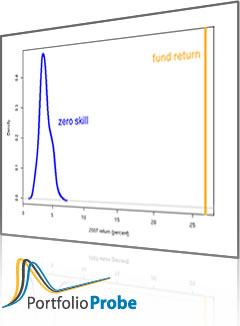Follow us using:
Newsletter Sign-up
Monthly Archives: November 2011
Alpha decay in portfolios
How does the effect of our expected returns change over time? This is not academic curiosity, we want to know in the context of our portfolio if we can. And we can — we visualize the effect of expected returns in situ. First step The idea is to look at the returns of portfolios that … Continue reading
Posted in Quant finance, R language, Random portfolios
Tagged alpha decay, expected returns, MACD, realized alpha
5 Comments
The carry trade — almost wordless
The idea Borrow in a currency with low interest rates, lend in a currency with high interest rates. The image Photo by Patti via stock.xchng The question Am I wrong? Subscribe to the Portfolio Probe blog by Email
Upcoming events
New events QWAFAFEW-NYC 2011 November 29 5:30PM Midtown: Barry Feldman on “Stability – A New Dimension of Equity Style” and Dan diBartolomeo on “Five Easy Steps to Fixing the Credit Ratings Agencies” Abstract: Russell’s new defensive and dynamic indexes identify a new dimension of equity style Russell calls Stability. Russell has just launched global Stability … Continue reading
Posted in Events
Leave a comment
A quant finance group on LinkedIn
Room with a view. A problem Most groups concerning finance on LinkedIn are full of garbage. Lots of items that don’t pertain to the real subject of the group, including lots that don’t pertain to much of anything. The “Quant Finance” group was an exception — it was almost completely on-target. However, it seems to … Continue reading
Asynchrony in market data
Be careful if you have global daily data. The issue Markets around the world are open at different times. November 21 for the Tokyo stock market is different from November 21 for the London stock market. The New York stock market has yet a different November 21. The effect The major effect is that correlations … Continue reading
Posted in Quant finance, R language
Tagged asynchronous data, asynchrony, multivariate moving average
3 Comments
Performance measurement is about decisions
The return of a hypothetical fund was 17.9% in 2010. We want to know if that is good or bad. The benchmark method The assets in the portfolio are constituents of the S&P 500, so we can compare our fund return to the return of the index. Figure 1: 2010 returns of: the fund and … Continue reading
Posted in Performance, R language, Random portfolios
Tagged investment performance measurement, luck versus skill
4 Comments
Review of “Saving Capitalism from Short-Termism” by Alfred Rappaport
Several practical steps. Executive summary A great goal, but can it deliver? I was skeptical. However, I’ve been won over — the book proposes several specific actions that are feasible and powerful. Culprits of the crisis The book starts with an accounting of the culprits who caused the financial crisis of 2007-20??. Pretty much everyone, … Continue reading
Posted in Book review, Fund management in general
2 Comments
Another look at autocorrelation in the S&P 500
Casting doubt on the possibility of mean reversion in the S&P 500 lately. Previously A look at volatility estimates in “The mystery of volatility estimates from daily versus monthly returns” led to considering the possibility of autocorrelation in the returns. I estimated an AR(1) model through time and added a naive confidence interval to the … Continue reading
Posted in Quant finance, R language
Tagged autocorrelation, mean reversion, S&P 500, variance compression
5 Comments
The mystery of volatility estimates from daily versus monthly returns
What drives the estimates apart? Previously A post by Investment Performance Guy prompted “Variability of volatility estimates from daily data”. In my comments to the original post I suggested that using daily data to estimate volatility would be equivalent to using monthly data except with less variability. Dave, the Investment Performance Guy, proposed the exquisitely … Continue reading
Posted in Quant finance, R language
Tagged annualize, autocorrelation, S&P 500, variance compression, volatility
18 Comments
Some new ideas in financial mathematics
Financial mathematicians have built an increasingly elaborate structure around the idea of “the market” … In this article, I intend to challenge some of these foundational concepts with the intention of destabilizing the intellectual structure that has been erected on top of them and to demonstrate how a randomly generated portfolio can beat “the market,” … Continue reading
